15 Examples Of Maths Patterns In Nature That Will Stun You (Part 1)
Dhir Acharya - Jun 06, 2025

Maths presence is also in nature, though it doesn’t sound relevant at all? The following examples will show you how Maths is beautifully shown in nature.
- Indian Kid Broke 4 World Records In Maths After Surviving Severe Head Injury
- A Person Who Is Good At Maths Might Have A Successful Career
- Fear Maths, Love Maths, You Will Find Yourself In These 12 Epic Bollywood Quotes
When we talk about Maths, we all think about numbers, books, computers, etc. But do you know that Maths’ presence is also in nature, though it doesn’t sound relevant at all? The following examples will show you how Maths is shown through wonderful things in the natural world.
Snowflakes
This is one of the most popular examples, which shows symmetry in nature. In particular, they indicate six-fold radical symmetry whose arms have identical, elaborate patterns. It’s already challenging for researchers to find out why there is symmetry in plant life as well as in the animal kingdom, and now the phenomenon’s appearance in inanimate objects just further infuriates them.

Snowflakes form when water molecules solidify and arrange themselves naturally. In this process, there are weak hydrogen bonds formed between water molecules. The bonds align in an order to maximize attractive forces while reducing repulsive ones, hence the distinct hexagonal shape.
Interestingly, while a snowflake is completely symmetrical inside itself, there’re no two snowflakes alike. This is because when snowflakes fall from the sky, each of them undergoes different atmospheric conditions, like humidity and wind, which impact on how the flake’s crystals form. At the same time, each of the flake’s arms experiences the same conditions, so they crystallize in the same way.
Sunflowers
These beautiful flowers show radial symmetry, as well as a kind of numerical symmetry, called the Fibonacci sequence. In this sequence, we determine each number by adding together the two numbers preceding it, for example, 1, 2, 3, 5, 8, 13, 21, 24, 55, and so on.

According to flower enthusiasts and scientists, through their counting, the amount of seed spirals of the sunflower adds up to a Fibonacci number. This can also be seen in a lot of plants’ leaves, seeds, and petals and also the reason why we hardly see four-leaf clovers.
As to why sunflowers abide by mathematical rules, scientists’ theory says it’s due to efficiency. Simply speaking, the flowers can hold the most seeds if each seed is separated by an irrational-numbered angle.
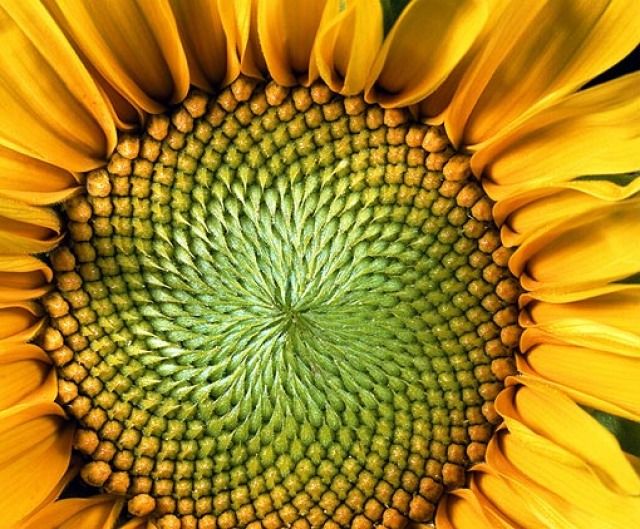
Phi, also known as the golden ratio, is the most irrational number. And by dividing any Fibonacci number by the preceding number in the sequence, we will get a number that’s close to Phi. As a result, when a plant follows the Fibonacci sequence, each of its seeds, leaves, petals, or branches will be in an angle corresponding to Phi with another.
Nautilus shell
A nautilus is a cephalopod mollusk that has a spiral shell along with many shot tentacles around its mouth. Nautiluses also show Fibonacci numbers. The shell of a nautilus is grown in a Fibonacci spiral, which tries to maintain the shell’s proportional shape as it grows.
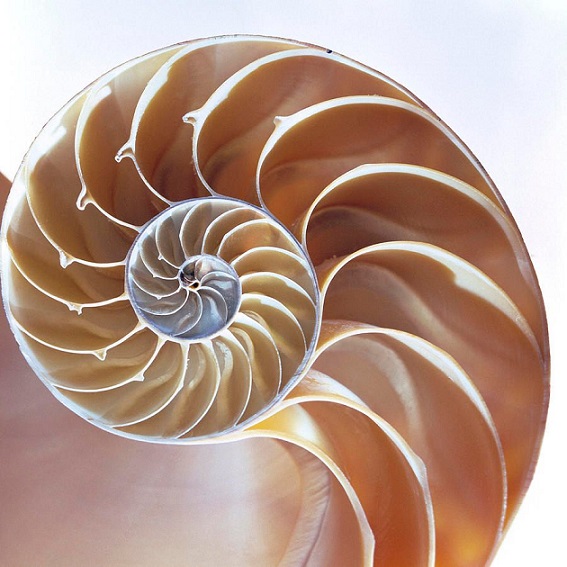
While the proportion of animals and humans’ bodies change as they grow, the nautilus has a growth pattern that helps it maintain the same shape throughout its life. However, not all nautilus follow this pattern but it will be one logarithmic spiral or another. And they don’t even know how their shells grow, they just simply benefit from an advanced evolutionary design.
Pine cones
The seed pods of pinecones arrange in a spiral pattern. They have two spirals, each of which twists upwards in opposing directions. Most of the time, the step number will match a pair of consecutive Fibonacci numbers.
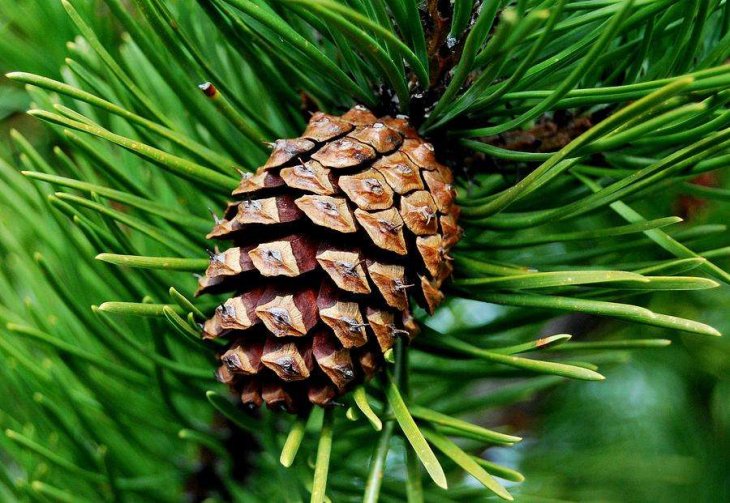
Honeycombs
Mankind has long been amazed by the honeycombs’ hexagonal figures. Bees can instinctively make this, but humans would have to use a compass and ruler if they want to reproduce the structure.
And honeycombs indicates wallpaper symmetry, in which a pattern is repeated until it fully covers a plane. It is believed by mathematicians that bees choose this structure as this the most efficient to store the most honey possible with the smallest amount of wax.
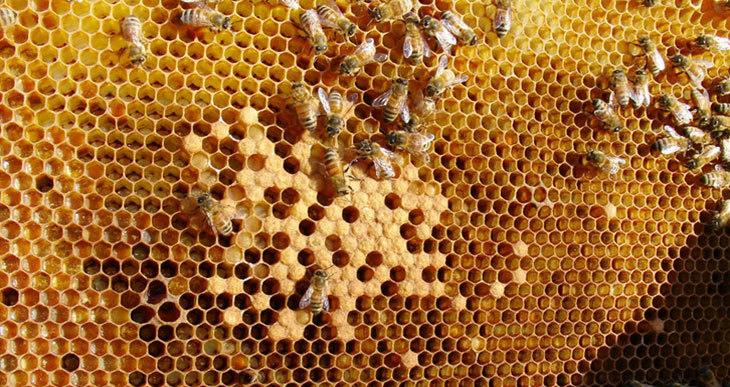
Tree branches
So far, we have talked about the Fibonacci sequence in several examples in nature, and this is another one. A tree’s main trunk grows till it produces a branch, creating two growth points. Then, one of the new stems branches into two, and the others remain dormant. This process repeats with each of the new stems. This pattern also appears in root systems.
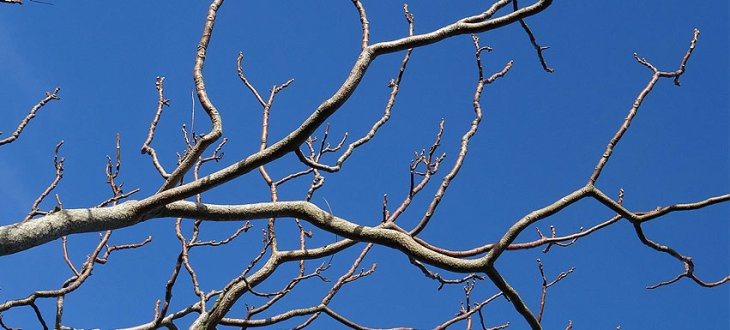
Orb web spiders
Orb web spiders are divided into about 5,000 types. They all make almost perfect circular webs with near-equal-distanced radical supports that come out of the middle as well as a spiral they weave to catch preys.
It remains unclear how orb spiders are geometrically inclined. As shown by tests, orbed webs do not catch prey better than irregularly shaped webs.
As per some scientists’ theories, orb webs are made for strength, and radical symmetry helps evenly distribute the force when a prey makes contact with the web, which means fewer rips caused to the thread.

Featured Stories

Features - Jan 29, 2026
Permanently Deleting Your Instagram Account: A Complete Step-by-Step Tutorial

Features - Jul 01, 2025
What Are The Fastest Passenger Vehicles Ever Created?

Features - Jun 25, 2025
Japan Hydrogen Breakthrough: Scientists Crack the Clean Energy Code with...

ICT News - Jun 25, 2025
AI Intimidation Tactics: CEOs Turn Flawed Technology Into Employee Fear Machine

Review - Jun 25, 2025
Windows 11 Problems: Is Microsoft's "Best" OS Actually Getting Worse?

Features - Jun 22, 2025
Telegram Founder Pavel Durov Plans to Split $14 Billion Fortune Among 106 Children

ICT News - Jun 22, 2025
Neuralink Telepathy Chip Enables Quadriplegic Rob Greiner to Control Games with...

Features - Jun 21, 2025
This Over $100 Bottle Has Nothing But Fresh Air Inside

Features - Jun 18, 2025
Best Mobile VPN Apps for Gaming 2025: Complete Guide

Features - Jun 18, 2025
A Math Formula Tells Us How Long Everything Will Live
Read more

How To- Mar 04, 2026
Getting Started with AI: A Newbie's Simple Guide
Are you curious about artificial intelligence but not sure where to begin? You are not alone.

ICT News- Mar 05, 2026
X Platform Implements Strict Measures Against Fake AI-Generated Videos Amid Iran Conflict
In the meantime, users are advised to scrutinize sources, check for AI indicators, and rely on verified news outlets.
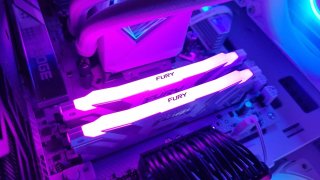
ICT News- Mar 03, 2026
Budget Entry-Level PCs Under $500 to Vanish by 2028 Due to Memory Price Surge
The era of the sub-$500 PC appears to be ending.
Comments
Sort by Newest | Popular